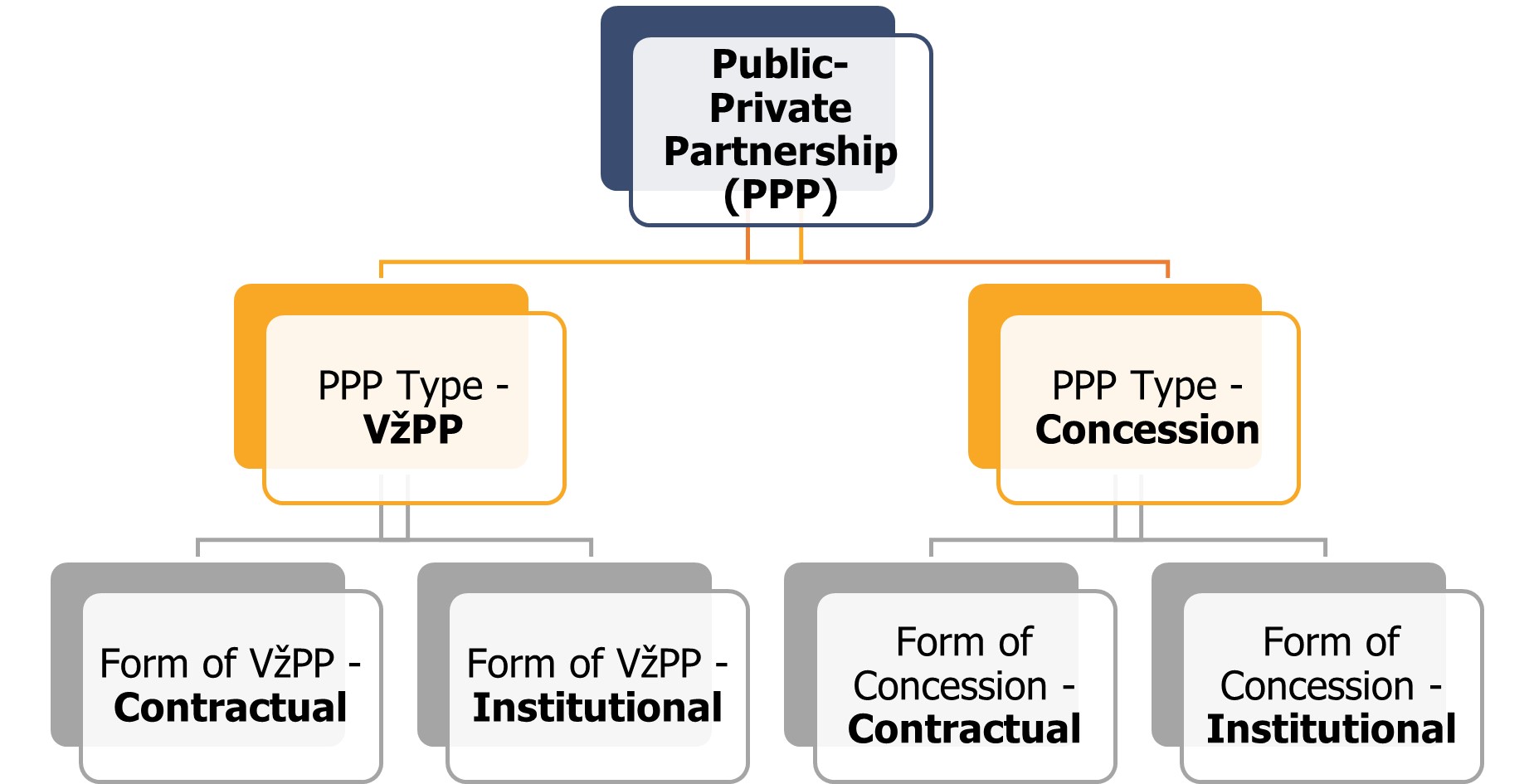Agreement types and forms of PPP in Lithuania
PPP agreement types in Lithuania
There are 2 types of PPP agreements in Lithuania - government and private entities partnership (VžPP) and concession. The main difference between the two types is the assignment of demand risk.
In case of government and private entities partnership (VžPP), construction, asset adequacy, and service quality risks shall be transferred to the private entity, while demand risks (e. g. number of pupils in schools, number of staff in administrative buildings, number of prisoners in detention facilities, etc.) shall be retained by the public entity. In these projects, the private entity receives all or most of the income from payments made by the public entity.
In case of concessions, the risks of construction, asset adequacy, quality of service, and all or most of the demand risks (number of visitors in sports arenas, swimming pools, campsites, museums, car parks, conference centres, etc.) shall be transferred to a private entity. The public entity may retain only a small part of the demand risk, e.g. in determining how many hours a day the municipality's schoolchildren will use the swimming pool, or how many events planned by the municipality per year will take place in the sports and concert arena.

PPP forms in Lithuania
In addition, both types of PPP (government and private entities partnership (VžPP) and concessions) can be implemented in 2 forms: contractual or institutional partnerships. The main difference between institutional and contractual partnerships is that in an institutional partnership, the public entity and the private entity create a joint venture (a private limited company) and sign a shareholders' agreement in addition to the PPP contract.
| The following key pieces of legislation must be followed when preparing and implementing PPP projects in Lithuania |
|

